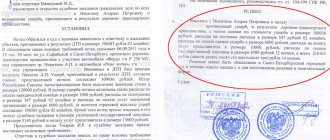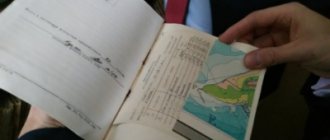If the defendant fails to appear at the trial (when taking measures based on notification), the judge makes a decision in absentia. A default judgment is a judicial act adopted in the absence of the full number of participants in the case, in order to end the proceedings.
- Grounds for canceling a default judgment
- Objection to cancellation of default judgment
- Refusal to cancel a default judgment
- Procedure for canceling a default judgment
- Deadline for filing an application to cancel a default judgment
- What happens after the default judgment is cancelled?
- Sample application for cancellation of a default judgment due to improper notification
Cancellation of a default judgment is possible upon application. It is correct to use this procedure and let’s understand in order why it is beneficial to cancel a decision in absentia, and not to appeal through filing an appeal.
Grounds for canceling a default judgment
There are not many reasons for canceling a default judgment. One of the main reasons is that the defendant may not appear in court. But his reasons must be valid, and if he could not inform the court about these circumstances in advance, otherwise this will not be a reason for canceling the default judgment.
The defendant collects certain documents to prove that the reasons for failure to appear were indeed valid and the court determines whether or not to cancel the decision in absentia.
Also, there comes a time when the court needs to notify the parties to the proceeding about the date and time of the trial; in this case, the basis for canceling the default judgment may be improper notification of the trial. This is also the reason for canceling the default judgment, because It is not possible to be in the process without parties who have not been notified.
In addition, it is necessary to explain to the court, when filing an application to cancel a default judgment, what circumstances the court incorrectly indicated in the decision, gave an improper assessment, and it is possible to present evidence that will turn the whole case around. It must be remembered that the abolition of default is not a delay in the consideration of the case with the help of the Code of Civil Procedure of the Russian Federation, but a real way to achieve a fair and legal court decision.
The procedure for canceling a default judgment and a sample application
In order for the defendant to exercise his right to cancel, a statement must be prepared. You can send it by mail (then the date of filing will be considered the date of receipt at the post office) or hand it over in person to the court office.
Let us remind you that only the defendant can file an application to cancel a default judgment. The plaintiff or third parties do not have this opportunity. There is no state duty required by law when filing.
What the form and content of the application should be is stated in Art. 238 Code of Civil Procedure of the Russian Federation. It should contain:
- name of the court . Let us remind you that you should not appeal to a higher court, but to the one that made the default decision.
- Full name of the applicant . It is necessary to indicate the place of residence, telephone number, as well as the procedural status of the author and the nature of the case (it is not necessary to indicate its number, we recommend simply noting what the claim is about and who the participants are);
- circumstances that did not allow the author of the application to participate in the meeting or timely report the reasons for absence. The reasons given (illness, stay in another region or abroad, living at a different address, etc.) will be assessed by the court as to whether they were sufficiently valid;
- evidence confirming the above circumstances - receipts, medical statements, etc.;
- evidence that may influence the court's decision . This is another group of information that does not relate to the reasons for failure to appear. Here it is necessary to state on what grounds the defendant believes that the decision does not meet the requirements of legality, and to provide evidence that was not the subject of research in absentia proceedings;
- author's request to cancel the default judgment , date and signature;
- application , in which the applicant provides the judge with all the evidence referred to.
Application example:
In the N-sky district court of N-sk
Applicant: defendant A.A. Petrov, living in Nsk, st. Rybakova, 2, apt. 16, tel. 89677
in civil case No. 123/20 according to the claim of Vasiliev A.A. to Petrov A.A. on collection of the debt, interest and penalties in the amount of 600,000 rubles
Application for cancellation of a court decision in absentia (sample)
The N-sky District Court of the city of N-sk is processing civil case No. 123/20 based on the claim of A.A. Vasiliev. to Petrov A.A. to collect the amount of debt, interest and penalties in the amount of 600,000 rubles.
By absentee decision of the N-sky district court of the city of N-sk dated March 20, 2020, the claims of Vasiliev A.A. fully satisfied. The court's decision indicated the failure of the defendant to appear, who did not provide information about the reasons for the absence, as well as proper notification of him at his place of residence at the address st. Rybakova, 2, apt. 6, Nsk.
At the same time, the court did not take into account that the notice was not sent to the place of my registration, since I permanently reside in the apartment. 16 house 2 on the street. Rybakov, and not in apartment No. 6 of the specified building, where the notice and a copy of the claim were sent. A copy of the court decision was sent by the court to a reliable address, and I received it on March 30, 2020.
In addition, when considering the case in absentia, the court took into account only the evidence of the plaintiff, while the latter was not informed to the court that part of the debt was paid by me in December 2021, as evidenced by the receipt. In this regard, the result of the dispute consideration does not correspond to the actual circumstances, the decision is subject to cancellation.
Based on Part 1 of Art. 237 of the Code of Civil Procedure of the Russian Federation, the defendant has the right to submit to the court that made the decision in absentia an application for its cancellation within seven days from the date of delivery of a copy of this decision to him.
In accordance with Art. 242 of the Code of Civil Procedure of the Russian Federation, a court decision in absentia is subject to cancellation if the court determines that the defendant’s failure to appear was caused by valid reasons that he did not have the opportunity to inform the court about, and in this case the defendant refers to circumstances and presents evidence that may affect the content of the court decision.
Based on the above, guided by Art. Art. 237, 238, 242 of the Civil Procedure Code of the Russian Federation,
ASK:
To cancel the absentee decision of the N-sky district court of the city of N-sk dated March 20, 2020 in civil case No. 123/20 on the claim of Vasiliev A.A. to Petrov A.A. to collect the amount of debt, interest and penalties in the amount of 600,000 rubles.
Resume the consideration of the case, notifying the parties of the date of the hearing.
Attachment: copy of passport with a mark of registration at the place of residence st. Rybakova, 2, apt. 16, Nsk; receipt dated December 19, 2019 for the payment of 120,000 rubles to Vasiliev towards the debt.
04/05/2020, Petrov A.A., signature
If there is a power of attorney, not only the defendant himself, but also his representative can make such an application.
If you need to restore the filing deadline, a separate petition is not required ; you can indicate this here in the application.
After receiving the application, the court sets a date for a hearing at which it will consider it. All persons participating in the case are notified of the day of the hearing, they are sent copies of the application and its attachments.
The court is obliged to hold a hearing on the issue of reversing the decision within 10 days . If one of those summoned fails to appear, this does not prevent the hearing.
From the sample we see that the defendant provides information that is important for resolving the dispute. This is what will be taken into account when considering the application. The court makes one of two determinations:
- to refuse satisfaction - if it considers that the defendant had no valid reasons for ignoring the hearing and there is no evidence worthy of attention that would influence the resolution of the dispute. The refusal cannot be appealed, since such a determination does not interfere with the further development of the case (the parties have the right to appeal the decision, which we will discuss below).
- to satisfy the application, cancel the default judgment and resume the proceedings - if there are grounds: valid reasons for the defendant’s absence from the proceedings are confirmed, the inability to report this and strong evidence affecting the substance of the dispute is provided. All of the above conditions must be met simultaneously.
After the decision in absentia is canceled, court staff take steps to prepare for consideration of the case on the merits, since the proceedings are resumed from the very beginning by the same composition.
All parties to the dispute are notified of the time and day of the first hearing.
If the defendant does not appear this time, the proceedings can no longer become absentee. According to the general rules, if no information is received from him about the reasons for failure to appear, then the consideration takes place without his participation, but with the issuance of an ordinary, not absentee, decision.
Objection to cancellation of default judgment
The parties to the process can file an objection to the cancellation of the default judgment if they correctly explain to the court what their explanations consist of. The court will need to be convinced that the plaintiff or defendant did not have valid reasons for canceling the default judgment, and if there were, they were not supported by anything.
Speaking frankly, the parties to the proceeding, when objecting, refer to facts that, in total, form a not very stable relationship. The parties do not have convincing arguments to object. This is done to delay the process, which will end one way or another. Therefore, the tightening procedure does not make sense. The court has already made certain conclusions and in the absence of other evidence, the court's opinion will not change. With rare exceptions, the judge may change his decision, but such situations when the process is delayed are rare.
When drawing up an objection, it is necessary to approach this process competently and convincingly. You need to seek help from a highly qualified lawyer who can build an ideal objection model. Correctly interpreting the provisions of the law that will affect the consideration of the case is an important procedure.
The law office “Katsailidi and Partners” successfully handles such cases; our lawyers can assess the complexity of this process and suggest the points you need. Consultation from specialists will help you quickly deal with the current problem.
Refusal to cancel a default judgment
The court may refuse to cancel a default judgment due to the fact that the parties were notified of the place and time of the court hearing in the required form and the court has the fact that the parties received a summons, and one of the parties did not appear in the proceeding. Since the court warns the parties in advance about the place and time of the court hearing, it can be difficult to prove the presence of valid reasons for absence from the hearing.
Moreover, without the proper documentation for a valid reason, the refusal to set aside a default judgment is not even considered by the court.
The court issues a ruling refusing to cancel the default judgment; this ruling can be appealed on appeal. And on the basis of the appeal, the court will again consider all the circumstances and come to the conclusion of refusing the complaint or making a decision from a higher authority to cancel the default decision.
Procedure for canceling a default judgment
What to do when a default judgment has been made, and the defendant wanted to come and defend his rights, but for objective reasons was unable to appear in court? In this case, in order to maintain adversarial rights and equality of the parties, the law establishes the institution of canceling a default judgment.
Our lawyer will also help you in the procedure for appealing a court decision, even if your case was not heard in absentia.
- After the procedure for canceling the default judgment, the proceedings begin anew.
- After submitting the application, it is important to track the date and time of its consideration. Consideration of such an application in court provides an opportunity for the defendant to support the arguments presented, bring new ones, and refute the plaintiff’s arguments in the case.
Deadline for filing an application to cancel a default judgment
To cancel a default judgment, you must submit an appropriate application indicating the validity of the reason for not appearing in court, as well as presenting facts and evidence that will affect the court decision. It is the combination of two grounds that influences the positive decision on the application to cancel the default judgment.
Such an application is submitted to the court that made the decision in writing within seven days after receiving the decision. If this deadline is missed, it can be restored. Do not forget to attach to the application copies of it according to the number of participants in the process, as well as copies of the documents on which your demands and objections regarding the judicial act are based. Our organization has a permanent promotion to fill out an application.
The positive side of canceling a decision is the guarantor of a comprehensive and complete resolution of the dispute, which will be facilitated by filing a counterclaim, presenting new evidence, and involving parties interested in the outcome of the case. If the case is reviewed on appeal, this will become unacceptable, and therefore, we always recommend that our clients who apply for legal assistance try to overturn the default judgment, and then, if this fails, use the appeal procedure for appealing the judicial act.
Cancellation of a default judgment
A defendant who does not agree with a court decision in absentia has the right to file an application to cancel this decision. The application is submitted within seven days from the date of receipt of a copy of the document, and the day of delivery does not count towards this period. The application to cancel a default judgment must indicate:
- the name of the court whose decision the defendant wants to cancel (the application is submitted and addressed to the court that made the decision in absentia proceedings);
- full details of the applicant - full name, procedural status, residential address, contact telephone number;
- circumstances confirming the fact of a valid reason for the defendant’s failure to appear in court, about which he could not inform the court in a timely manner; evidence of these circumstances;
- available evidence and circumstances influencing the content of the decision made by the court in absentia proceedings;
- the defendant's request to cancel the decision;
- list of attached documents;
- signature and date of document preparation.
Important! An application to cancel a default judgment is submitted to the court accompanied by copies of the document according to the number of persons participating in the case and is not subject to state duty.
After the application is received by the court, it is considered at a court hearing. The review period is 10 days from the date of its receipt. Participants in the trial must be properly notified of the time and place of consideration of the application, while the failure of the parties to appear is not an obstacle to the court making a decision based on the results of consideration of the application. When considering an application, the court may:
- refuse the application;
- cancel the default judgment and reopen the case.
The result of consideration of an application to cancel a default judgment is a separately issued court ruling, which is not subject to appeal. As part of the resumption of judicial proceedings, the case is considered on the merits in the same or a different composition of the court, if the defendant does not appear at the court hearing this time, the decision again taken by the court will no longer be in absentia.
Important! Please note that justification alone is not enough to cancel a default judgment; conditions must be met, such as: the presence of a valid reason for the defendant and circumstances/evidence that could influence the content of the court decision.
What happens after the default judgment is cancelled?
The procedure after reversing a default judgment is as follows:
- The court resumes consideration of the case on the merits . Now is the time for you to provide evidence, give explanations, and justify your position in all legal ways.
- A decision in absentia will not be issued again . The most important thing here is this: if this time the defendant does not appear at the trial, then the court’s decision upon a new consideration of this case will no longer be a decision in absentia. And in this case, the defendant will no longer be able to once again apply for a review of this decision in absentia proceedings.
Cancellation of default judgment
This is the very first stage of the appeal. Only the defendant can take advantage of this procedure. An application to cancel a default decision must be prepared and submitted to the court within 7 days from the date of delivery to the defendant of a copy of the appealed decision.
Mandatory content of the application (Article 238 of the Code of Civil Procedure):
- The name of the court that made the appealed decision.
- Details of the applicant (respondent).
- Circumstances that:
- confirm that the reasons for failure to appear at the court hearing during which the appealed decision was made were valid;
- justify the impossibility of promptly informing the court about the reasons for failure to appear;
- influence or may influence the content of the court decision.
- Evidence that confirms the above circumstances.
- The applicant's request to cancel the default judgment.
- Date and signature of the applicant or his authorized representative.
As can be seen from the contents of the application, the basis for canceling a default judgment is a set of conditions:
- the justifiable nature of the defendant’s failure to appear in court;
- the defendant does not have the opportunity to inform the court that he cannot participate in the court hearing for valid reasons;
- the presence of circumstances that were not considered in court when making a decision in absentia, but could affect its content (in this case, a relationship is assumed between the defendant’s absence in court, his inability to present his evidence, and a decision made not in favor of the defendant because of this).
When preparing an application, it is necessary to list these conditions, reflect the circumstances that caused them, and be sure to provide evidence confirming the existence of conditions and circumstances. Of course, everything must be formulated clearly and convincingly. The applicant will have the opportunity to personally present his position and arguments at the meeting to consider the application to cancel the default judgment. But failure to appear at this meeting will not be a barrier to making a decision.
Based on the results of consideration of the application to cancel the default judgment, the court will either grant the request or deny it.
If the default judgment is overturned, the court resumes consideration of the case as usual. And here one circumstance is important: if this time the defendant does not appear at the court hearing, whatever the reasons, the court decision will no longer be considered made in absentia, and the defendant will not be able to repeatedly request its cancellation.








